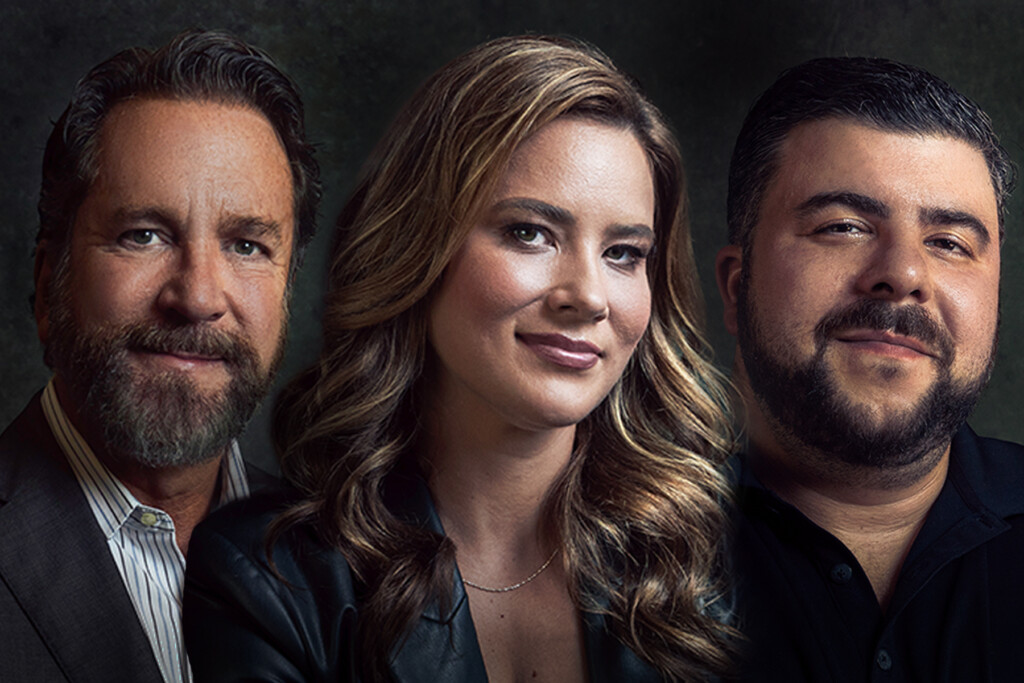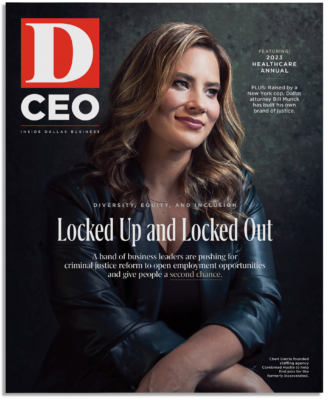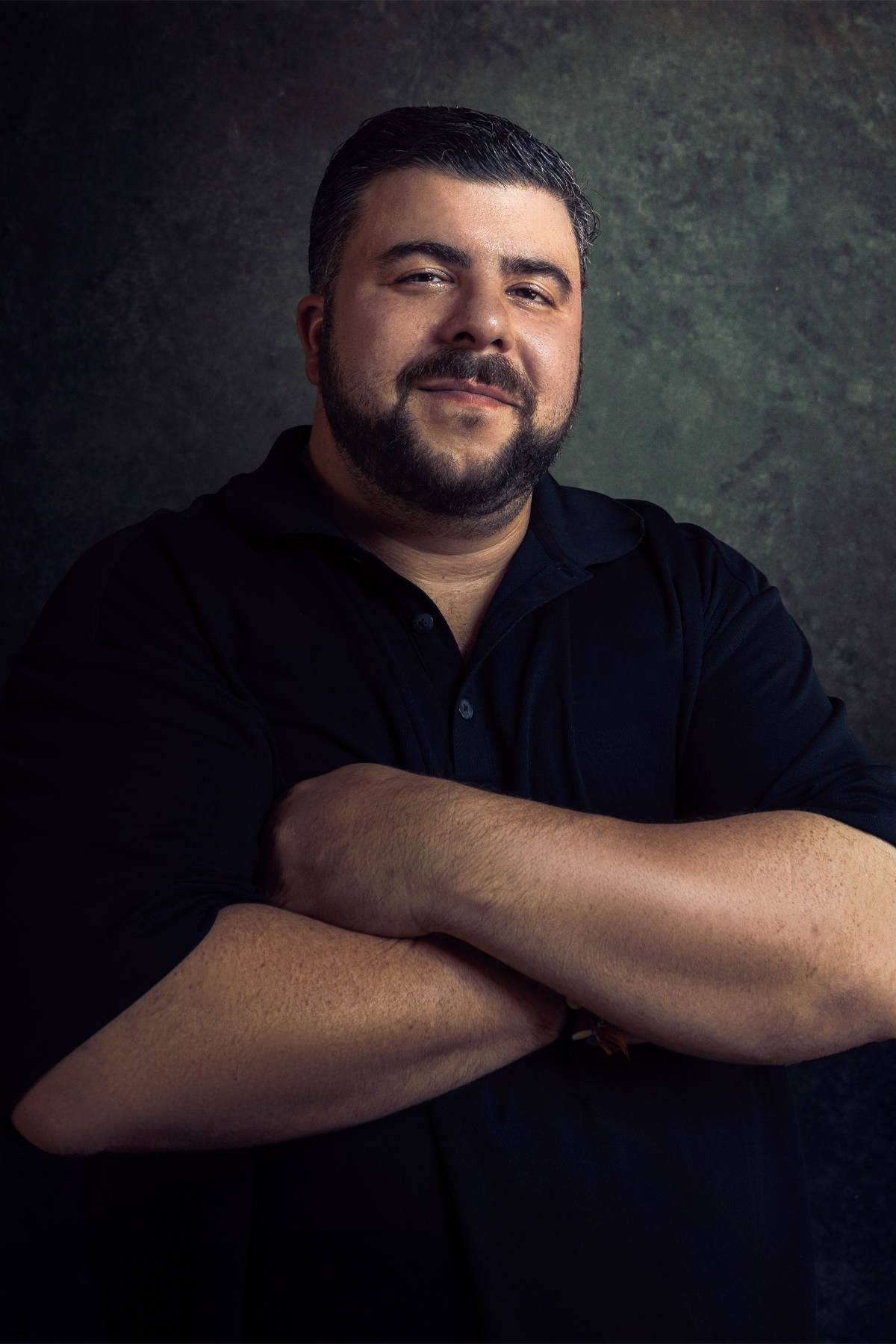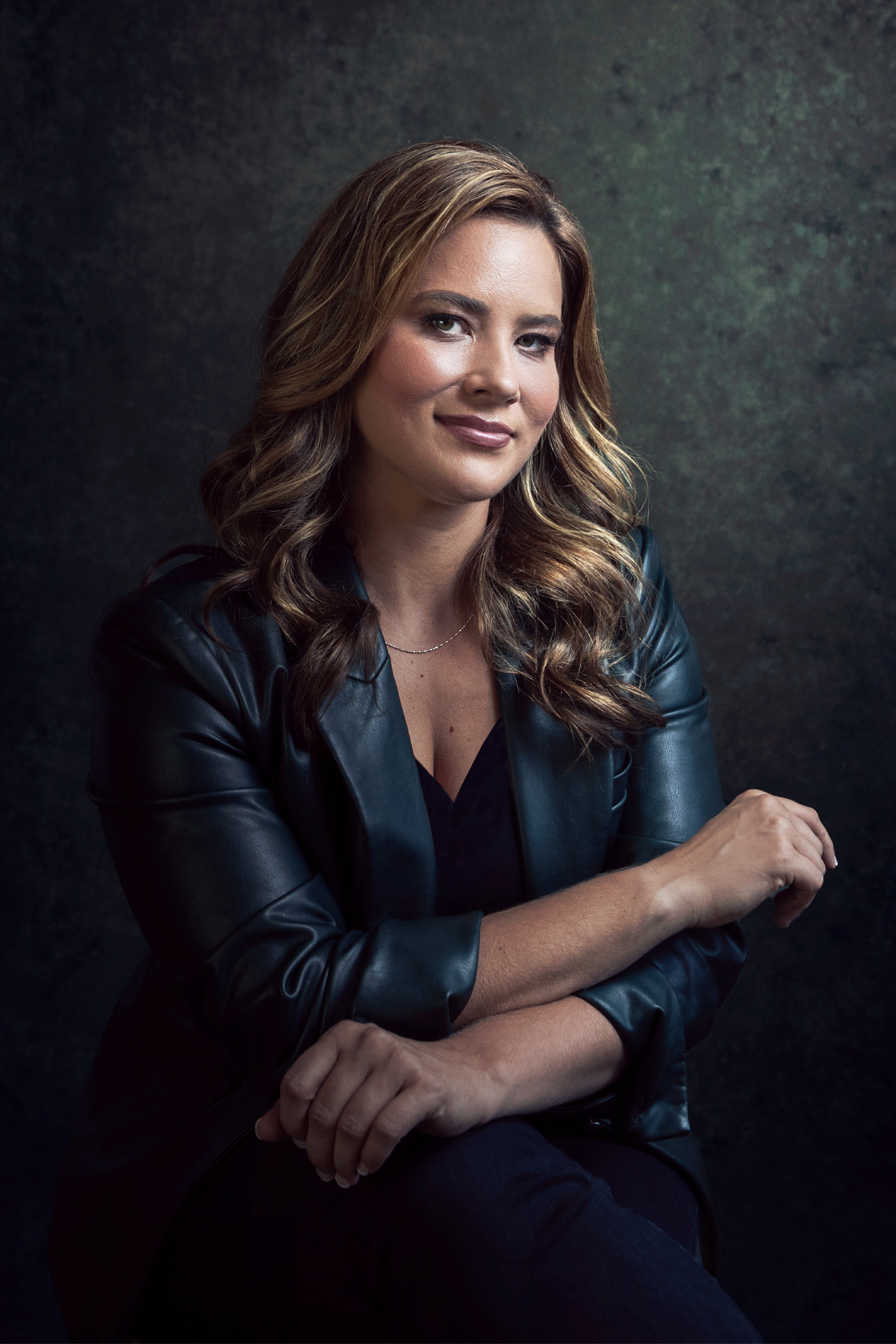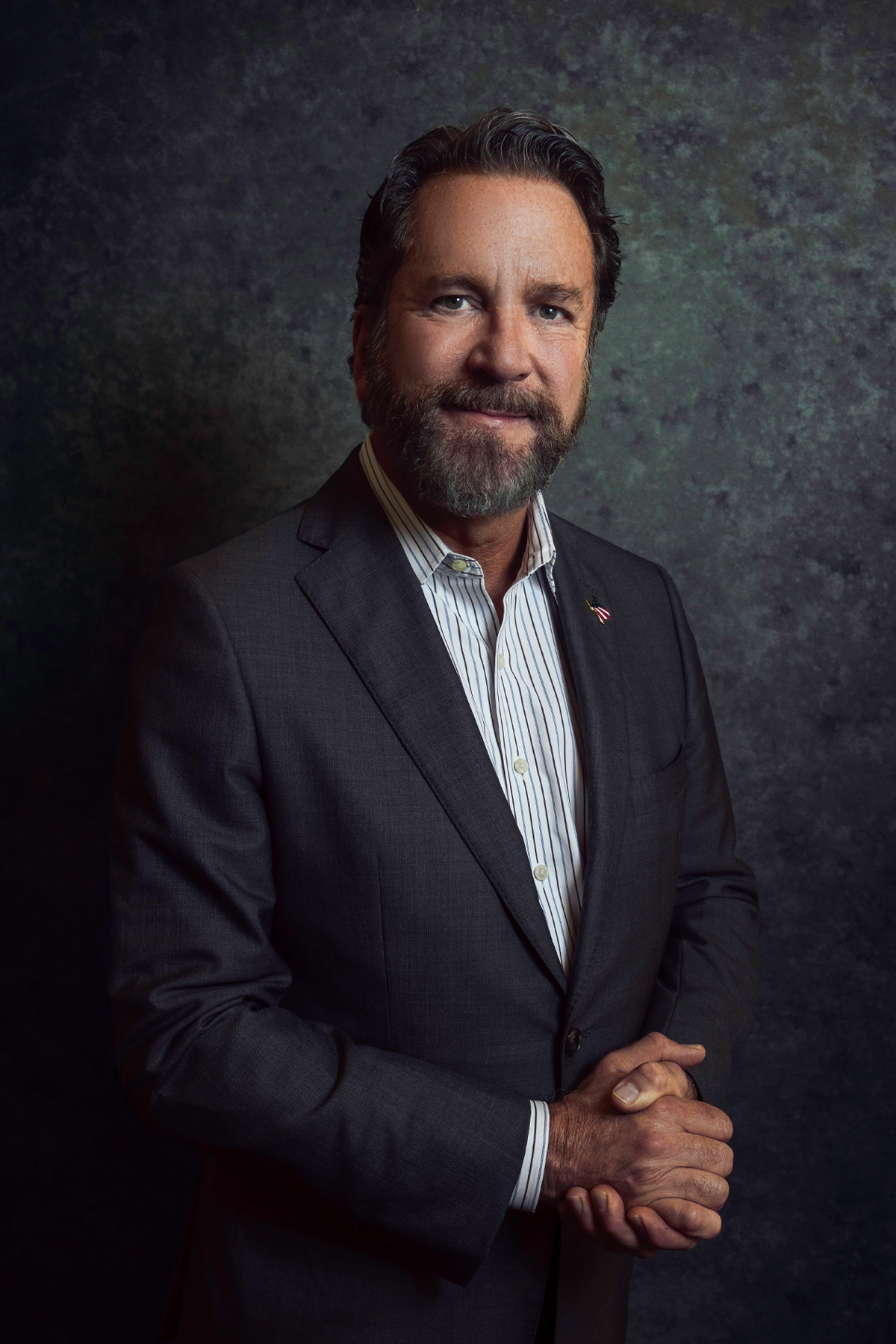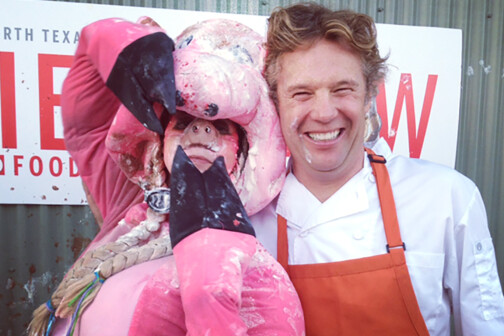The racial and criminal justice awakening over the last few years is compounding with the labor shortage to reform how the law and corporations see justice-impacted individuals. D CEO’s Will Maddox took a deep dive into the topic in a September issue cover story on How Criminal Justice Reform is Becoming a Corporate Priority. As part of the package, we talked with three Dallas-Fort Worth business leaders who have been inspired by their “locked in and locked out” experiences to help effect change.
Danny Feldman
CEO, MyFRSH
With a mother who struggled with substance abuse for his entire life, Danny Feldman started out at a disadvantage. He’d spend his days at the Episcopal School of Dallas, then go home to a very challenging environment. “I ended up losing my mom to drugs and alcohol when I was 17 years old—right around Mother’s Day,” he says. “I was just finishing up my junior year of high school and wasn’t sure how to react.” He got into some trouble over the summer but managed to get a full-ride scholarship to Hofstra University in New York. By the middle of his freshman year of college, though, his legal troubles caught up with him. The state of New York would not accept a transfer for his probation, so he had to withdraw from school and move back to Texas.
When Feldman was charged as a teenager with possession of a controlled substance, with no one to guide him through the process, he took a plea deal and ended up a convicted felon. So, when he started reapplying to other colleges, he didn’t pass their background checks. “There are 44,000 laws on the books that are essentially barriers to entry for those with a felony conviction that preclude them from meaningfully participating in the economy—whether that’s housing, college, voting rights, or job opportunities,” Feldman says. “As a result of this, my options were next to nothing.”
He began selling Cutco knives, and a group of mentors in the company took him under their wings. “The one thing that people with a felony conviction can do is become an entrepreneur,” he says. Feldman started an office, grew it to 55 locations, and became an executive with the company. When he was 30, he and a Cutco mentor borrowed $30,000 from a friend to launch IFM Restoration (now called Stellar), a maintenance company that targeted the owners of single-family, for-rent properties. Their timing was impeccable. Within four months, the company was doing $2 million in revenue. By the third year, it was coming up on $25 million. Feldman and his partner were ready to take on institutional capital to scale ongoing growth. But, due to his conviction in high school, he was told that he would have had to sell all his equity and leave the business.
The partners found other financing, but it was a sobering moment. Stellar really began to take off after the pandemic hit; Feldman decided to cash out and put his skills and good fortune to work in other ways. “In my late teens and early 20s, I was the person who couldn’t get a bank account, couldn’t get a credit card, had to do a payday loan; I couldn’t go the traditional route because of my felony conviction,” he says. Feldman did some research and learned that 70 million people have some sort of criminal conviction, and 20 million have a felony conviction.
Existing resources focused on job training, certifications, and upskilling. So, in September 2021, Feldman launched FRSH, a fintech platform for banking, health insurance, and credit repair that targets those who have had brushes with the law. “We are the only financial services company that is born from the system and built for and by the justice-impacted community,” he says.
Cheri Garcia
Founder, Cornbread Hustle
Cheri Garcia was a high school cheerleader in The Colony when she got addicted to meth. “I tried it one time,” she says. That was all it took. She began dealing drugs to support her habit and got into trouble for minor things like warrants and petty theft. But after about two years, she became “sick and tired of being sick and tired” and quit—cold turkey. Then, she discovered another addiction: being a business owner.
“It filled the void of chasing the highs and lows,” Garcia says. “Entrepreneurship essentially saved my life. But it wasn’t going to fix me.” She invented a water float for tanning called Luminous Envy. “I always tell people my college tuition was my manufacturing costs, and my degree is my patent,” Garcia says. She began volunteering for the Prison Entrepreneurship Program, teaching those who were incarcerated how to develop business plans and marketing strategies. When some of the people she met got out of jail and reached out to her via Facebook, she started helping them get jobs.
The first was a man who was a skilled artist but had been imprisoned for 20 years. She taught him how to use Google, and they reached out to a Dallas mural company. “I called the owner and said, ‘Hey, I have this guy who is willing to work. He’ll take $10 an hour. He’s eager. He’s hungry. His work is amazing,’” Garcia recalls. “The owner said, ‘What’s the catch?’ I said, ‘Well, he just got out of prison for attempted murder, but he’s a nice guy.’” She accompanied him on the interview, sitting a few tables over at a restaurant. The ex-con was hired on the spot.
That was the start of Cornbread Hustle, an employment agency she started for second-chance individuals, whether they are justice-impacted or coming out of recovery. Garcia herself has been sober for four-and-a-half years. She shared her story on LinkedIn; it blew up, and today, she has more than 145,000 followers. When COVID hit, the entrepreneur worried that the pandemic would kill her fledgling company. Instead, she bought some hazmat suits and launched a service to disinfect essential businesses. “That was my first six-figure month,” Garcia says. “Our phone started ringing off the hook.”
While many traditional workers were home collecting pandemic unemployment, companies that had previously eschewed hiring second-chance employees gave it a try. “We became a million-dollar agency, and we quadrupled the next year,” Garcia says. Cornbread Hustle places a lot of skilled trades workers, from HVAC technicians to data analysts. Despite the pickup in business, she has “way more” applicants than employers.
To help prepare people for success, Garcia developed a 12-week Starting Over Program, a video series that’s available for about $100. Topics span everything from codependency and learning about triggers to getting and keeping a job and becoming a productive employee.
She encourages businesses to expand their minds when it comes to looking at job candidates. She has been encouraged by some to move away from focusing on second-chance employees, but Garcia is holding firm. “It’s hard for me to turn a blind eye, but I’m not sorry for it,” she says. “I feel that this company is being taken care of by a higher power because we’re trying to make an impact.”
Doug Deason
President, Deason Capital Services
Dallas investor Doug Deason grew up in Rogers, Arkansas, a city his family had lived in since the 1800s. His grandparents were farmers. “We were not wealthy, but everybody knew everybody,” Deason says. Like many of his peers, he partied a lot in high school and got slapped on the wrist a few times for possessing a controlled substance. But at 17, he threw a party at a neighbor’s home while the family was out of town. (Their son had given him a key.) Things got out of control, and the police showed up.
Deason was charged with felony burglary. Because of Deason’s family connections, he worked out a deal to plead guilty to a criminal trespass charge—a misdemeanor. He paid a $150 fine, did six months of probation, and had the whole matter erased from his record. Soon after, he applied to Arkansas and SMU and got accepted to both. “On the forms, there was a little box that asked, ‘Have you ever been convicted of a felony?’” Deason recalls. “I realized how lucky I was and said a prayer of thanks.” Later, as he filled out job applications or signed up for cell phone service, he was again confronted with that question—and reminded of how his family connections changed his life. “I thought about, ‘What if I had been new in town? What if I had been Black?’” Deason says.
His father, Darwin, moved to Dallas in 1984 and founded Affiliated Computer Services four years later; in 2010, he sold the company to Xerox for $6.4 billion. Doug had become involved in the enterprise and found success with his own investments. His gratitude for the second chance he was given back in 1979—and a keen awareness of others whose lives were profoundly impacted by similar youthful errors in judgment—led him to become deeply involved in criminal justice reform.
In 2012, he became aligned with Charles Koch, which led to work with Right on Crime, a national campaign of the Texas Public Policy Foundation that pushes for criminal justice reform, including legislation that helps seal criminal records. In 2016, he was the driving force behind the launch of the Deason Family Criminal Justice Reform Center at SMU’s Dedman School of Law. The center tackles issues such as wrongful convictions and over-incarceration. It was funded by $7 million in gifts from the Deason Foundation and the Charles Koch Foundation. Both made financial recommitments last year—$2.5 million from the Deason Foundation and about $1 million from the Charles Koch Foundation. Arnold Ventures joined with $1.2 million to fund research on pretrial due process and the right to counsel.
There’s much work to be done, Deason says. “It’s soup to nuts,” he says. “It’s sentencing reform—we over-incarcerate, especially at the federal level, diversion programs, getting people into treatment early on instead of locking them up, matters related to bail, and all the way to prison reform, things like adding air conditioning in prisons so people don’t die of heatstroke.”
Deason encourages business leaders to get involved and recommends starting by visiting a prison or jail to get to know those who are incarcerated on a human level. “You’ll find that people aren’t as bad as TV and the movies make them out to be,” he says. “A lot of these people are your peers, people you went to high school with or people you could see hanging out with or working with. They’ve just made mistakes but are highly employable. They call it a correctional system, but there’s nothing about it that corrects behavior or injustices. It’s just punishment.”
Author



